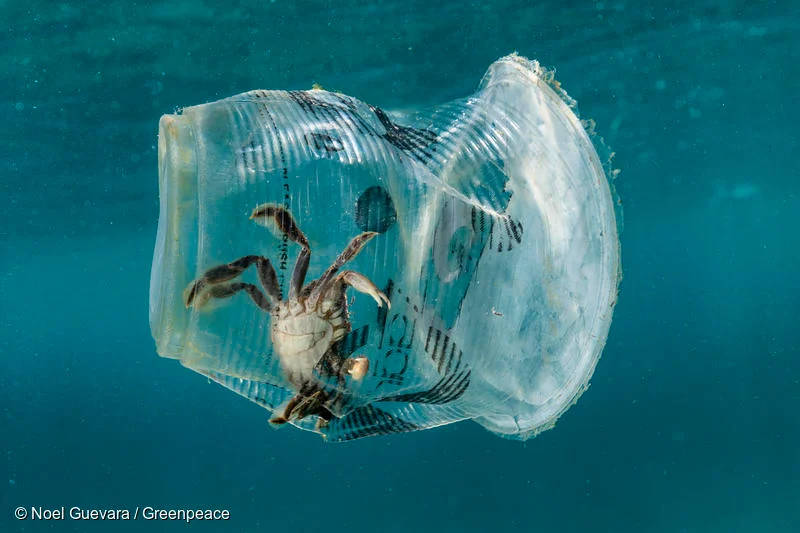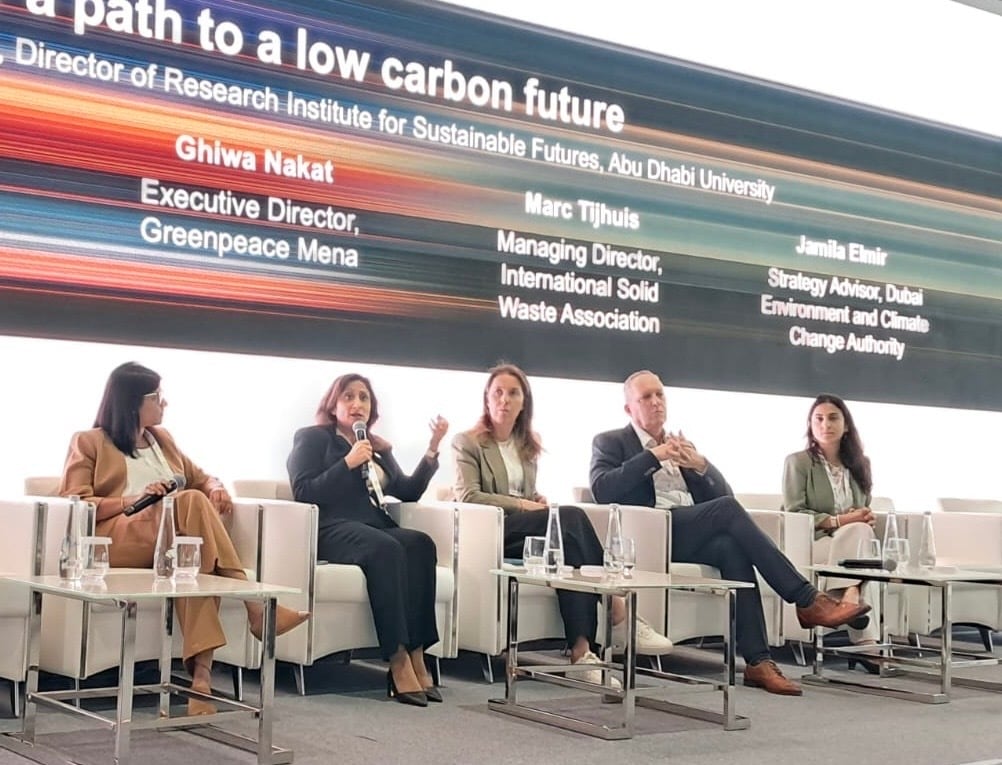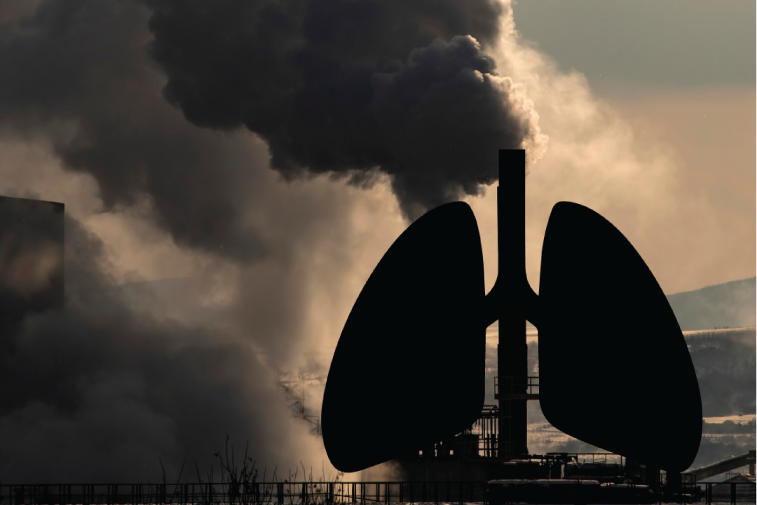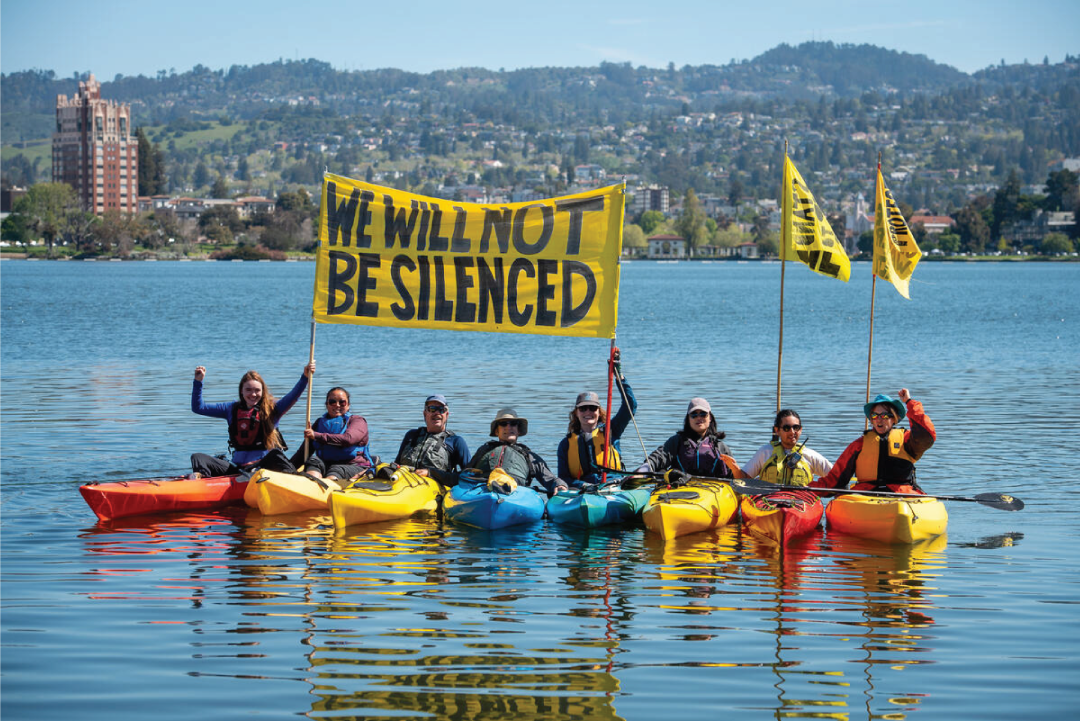Plastic pollution is one of the most pressing environmental issues of our time, but a strong Global Plastics Treaty must bring to an end the plastic crisis – from production to disposal.
Plastic is everywhere. Useful and convenient, it’s also a massive pollution problem. Wildlife becomes ensnared in discarded plastic and microplastics are eaten by ocean creatures. The MENA region has the highest per capita plastic footprint. On average, residents in MENA contribute more than 6 kg of plastic waste to the surrounding marine environment every year, a recent World Bank report estimates. To stop this, we must produce less plastic in the first place.
The Impact On Our Ecosystems
Plastic is polluting every corner of the planet. It has found its way to the depths of our oceans, to remote forest paths, to the ice of the Arctic, and onto the island beaches where turtles nest. We don’t know exactly how long oil-based plastic will take to degrade (or even if it ever will), but we do know that once it’s in our soil, rivers, and oceans, it is impossible to clean up.
The plastic we see washing up on shores and floating on the water’s surface is only the tip of the trash berg. Over two-thirds of the plastic in our oceans ends up on the seafloor, creating an ever-growing wasteland beneath the waves. To make matters worse, bottles, bags, and other plastic junk gradually break into smaller and smaller pieces known as microplastics, which further damage ecosystems even as they’re invisible to the naked eye.
Plastic waste is an equally big problem away from the high seas, filling up landfill sites, clogging rivers, and generating pollution through open burning or incineration. Some plastics also contain and leach out hazardous chemicals, posing further risks to wildlife and people.
The Recycling Myth
Globally, only 9% of plastic gets recycled. Even in developed countries, the recycling rate for plastics collected by households is often far less than 50%, with very little of that converted back into packaging. Most “recycled” packaging waste is down-cycled into lower value or non recyclable products, meaning that the process is only delaying the plastic’s inevitable journey to the landfill.
Unfortunately, the plastics problem is becoming ever more urgent. The demand for plastics doubled in the last 20 years – and is expected to double again in the next 20 years. If the issue of plastic pollution is not addressed, the accelerating use and production of plastics could spell disaster for the well-being of communities and various ecosystems.
In this context, it is noteworthy that plastic pollution continues to cost the countries in the MENA region about 0.8 percent of the gross domestic product (GDP), on average, every year, whereas the average consumption of plastic bags in some Arab countries have reached 40 kilograms per capita annually, compared to the global average of 20.9 kilograms.
Plastic and Climate Change
What is worse is that the current plastics economy is a significant contributor to climate change. All plastic produced is derived primarily from oil. Therefore, the consumer goods sector is increasingly aligned with a longtime and troubling ally at the heart of our climate crisis – the fossil fuel industry.
Greenhouse gas emissions from the plastic lifecycle threaten the ability of the global community to keep global temperature rise below 1.5°C. More than 90% of plastic is made from fossil fuel, and a recent report by CIEL estimates that in 2019 alone, the pollution from global plastic production and incineration will equal the emissions of 189 coal-fired power plants. The same report estimates that by 2050, the greenhouse gas emissions from plastic could make up as much as 10-13% of the entire remaining carbon budget. If the overproduction and consumption of plastic continues uninterrupted, it could account for 20% of the total global oil consumption by mid-century.
As big brands continue their addiction to this harmful material, they are fueling climate impacts and jeopardizing communities in the name of profits. All over the world, communities of color face disproportionate health impacts from the plastics industry, whether through incinerators, landfills, petrochemical facilities, polluted waterways, or the harmful plastic packaging pushed on communities.
We Need A Global Plastic Treaty That Will Set The International Goal To Eliminate All Plastic Pollution
Disposable plastic is a recent human invention and, fueled by corporate greed, it has unfortunately become the norm.
To reduce plastic pollution caused primarily by the throwaway culture pushed by big brands like Unilever and Coca-Cola, we must work towards an ambitious, legally-binding global plastics treaty that will cap and phase out or stop production and use, and ultimately end single-use plastic pollution.
What is the Global Plastic Treaty? The Global Plastics Treaty is a once-in-a-generation opportunity and a legally binding instrument that is set to solve the plastics crisis.
To fast-track its implementation we are calling upon governments to commit to a strong global plastic treaty that will limit plastic production and rapidly transition us away from pointless plastic packaging and promote the implementation of refill and reuse systems on a worldwide level.
A treaty that addresses the entire life cycle of plastic (meaning from the moment it’s produced to the moment it ends up in our rivers, forests or toxic dump sites) with a focus on phasing out plastic production, is urgently needed, or else the devastating effects of plastic on climate change, the environment, and human health will go unaddressed.

“Don’t miss the once-in-a-generation opportunity to end the age of plastic. Support a strong Global Plastics Treaty!”
SIGN THE PETITION


